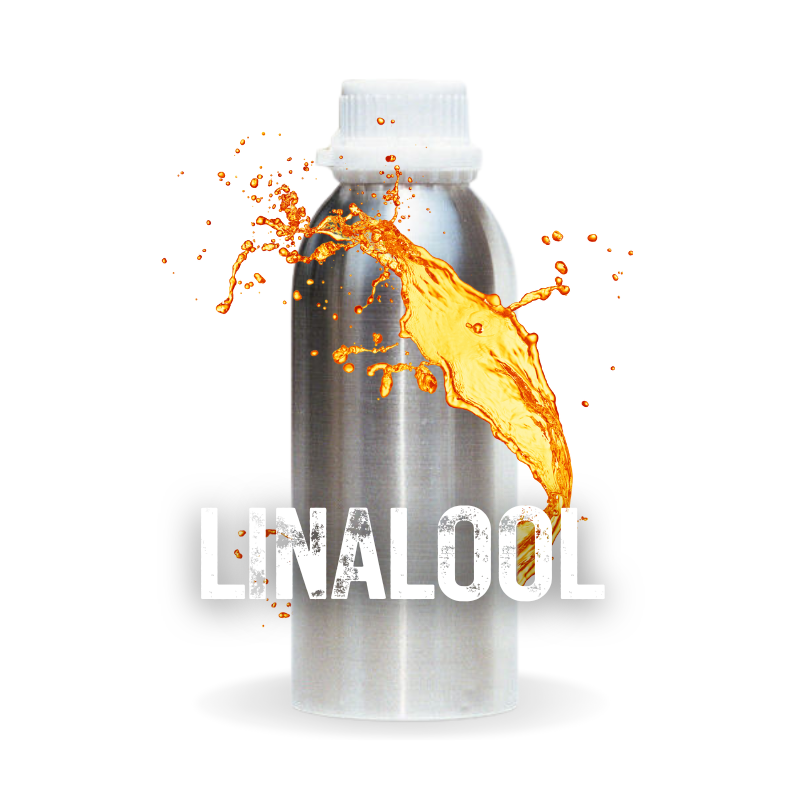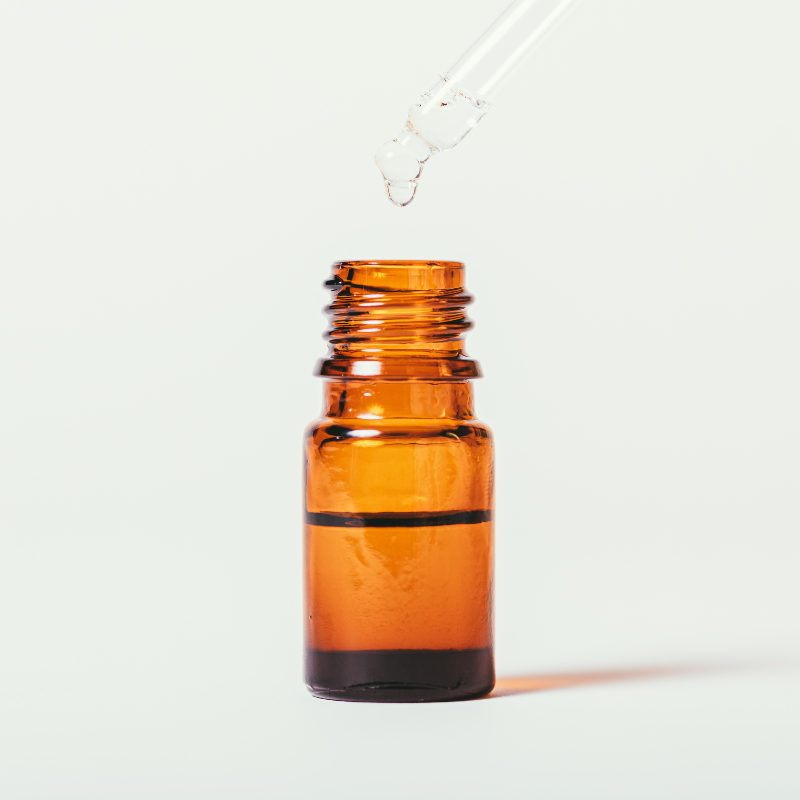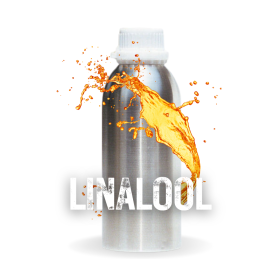Best Linalool Terpenes for Sale – Bulk Terpenes Isolates Online
Linalool, a terpene commonly found in cannabis, emits a delicate floral aroma with subtle hints of spice, offering strains a distinctive and soothing scent profile reminiscent of lavender. Beyond its aromatic allure, linalool is associated with a diverse range of potential therapeutic effects, including its reputed anxiolytic and sedative properties, which may help alleviate stress, anxiety, and promote relaxation.
Additionally, linalool exhibits anti-inflammatory and analgesic qualities, making it potentially beneficial for managing pain and inflammatory conditions. Its versatile nature extends beyond cannabis, as linalool is widely utilized in aromatherapy and personal care products due to its calming and soothing properties. In the context of cannabis chemistry, linalool enriches the sensory experience and potential medicinal applications of cannabis consumption, highlighting its significance as a compound deserving of further exploration and utilization.
Linalool Terpene Isolate
Formula: C10H18O
Flashpoint: Approximately 90°C (194°F)
Color: Colorless to pale yellow
Consistency: Liquid
Aroma: Floral, sweet, with hints of lavender and citrus
Taste: Mildly floral, slightly citrusy
Molecular Weight: Approximately 154.25 g/mol
Boiling point: Approximately 198°C (388°F)
Solubility: Sparingly soluble in water, soluble in organic solvents
Density: Approximately 0.858 g/cm³
Effects: Relaxing, calming, potentially anxiolytic
Source: Naturally found in lavender, rosewood, and various herbs and spices.
The Breakdown of Linalool
Overview: Linalool is a terpene found in various aromatic plants, including lavender, basil, and rosewood, renowned for its floral and calming aroma. With its delicate scent reminiscent of flowers and herbs, Linalool offers a soothing and relaxing essence that promotes tranquility and stress relief.
Aroma and Flavor: Linalool captivates the senses with its gentle and floral aroma characterized by lavender and lilac undertones. Its scent is reminiscent of blooming flowers and fresh herbs, with hints of sweetness and spice that add complexity to the overall profile. When consumed, Linalool offers a comforting and soothing flavor, with floral undertones that envelop the palate and leave a lingering sensation of relaxation and contentment.
Therapeutic Benefits: Linalool is revered for its therapeutic potential and has been used for centuries in traditional medicine for its various health benefits. It is believed to possess anxiolytic and sedative properties, making it effective in reducing stress, anxiety, and promoting sleep. Additionally, Linalool exhibits anti-inflammatory and analgesic properties, helping to alleviate pain, inflammation, and promote overall well-being. Moreover, its calming and mood-enhancing effects make it useful for promoting relaxation, enhancing mood, and reducing tension.
Applications: Linalool is versatile and can be incorporated into various products to harness its therapeutic benefits. It is commonly used in aromatherapy to create calming and relaxing atmospheres, promoting stress relief and tranquility. Additionally, Linalool can be found in skincare products such as lotions, creams, and essential oils, where it helps to soothe and rejuvenate the skin, reduce inflammation, and promote overall skin health. Furthermore, Linalool can be used in topical formulations such as balms, salves, and massage oils, where it helps to relieve pain, inflammation, and promote relaxation.
Why Choose Linalool?: Linalool offers a calming and soothing essence with a delicate floral aroma and a myriad of therapeutic benefits. Whether used in aromatherapy, skincare, or topical formulations, Linalool provides a natural solution for promoting tranquility, reducing stress and anxiety, and enhancing overall well-being. With its versatile applications and relaxing properties, Linalool is a valuable addition to any holistic wellness regimen.
Experience the Soothing Essence of Linalool: Indulge in the calming aroma and therapeutic benefits of Linalool. Elevate your wellness routine and immerse yourself in the soothing essence of this versatile terpene isolate. Discover the tranquility and relaxation that Linalool offers, and experience its comforting effects on mind, body, and spirit.
Extractions Methods:
Steam Distillation:
Steam distillation is a widely used method for extracting terpenes from plant material. It involves heating water to produce steam, which is then passed through the plant material. The heat causes the release of terpenes and other volatile compounds from the plant cells. The steam carrying these compounds is then cooled and condensed, separating the essential oils, including terpenes, from the water.
CO2 Extraction:
CO2 extraction utilizes carbon dioxide in its supercritical state as a solvent to extract terpenes and other essential oils from the plant material. In this method, CO2 is pressurized to a point where it becomes a supercritical fluid, possessing properties of both a liquid and a gas. This supercritical CO2 is then passed through the plant material, where it dissolves and carries away the terpenes. The CO2 is then depressurized, reverting to its gaseous state, and leaving behind the extracted terpenes.
Solvent Extraction:
Solvent extraction involves the use of a solvent, such as ethanol or hydrocarbons like butane or propane, to dissolve terpenes and other essential oils from the plant material. The solvent is typically applied to the plant material, where it extracts the terpenes through a process of dissolution. After extraction, the solvent is evaporated, leaving behind a concentrated mixture of terpenes and other compounds. This method is efficient but requires careful handling of flammable solvents and thorough purification steps to remove any residual solvent.
What Are Terpenes?
Aroma and Flavor: Terpenes contribute to the aroma and flavor profiles of plants. They are what give pine trees their characteristic smell, lavender its calming aroma, and citrus fruits their zesty scent.
Biological Functions: In nature, terpenes serve various biological functions. They can attract pollinators, repel predators, and protect plants from diseases and environmental stresses such as heat and cold.
Chemical Structure: Terpenes are made up of repeating units of a molecule called isoprene. Most terpenes are built from multiples of this five-carbon building block. Depending on how these units are arranged, terpenes can have different structures and properties.
Variety: There are over 20,000 different terpenes known to exist in nature, and they are found in many plants besides cannabis. Each terpene has its own unique scent and potential therapeutic properties.
Therapeutic Potential: Terpenes are believed to have various health benefits, including anti-inflammatory, anti-anxiety, and pain-relieving properties. When combined with cannabinoids like THC and CBD, terpenes may contribute to the entourage effect, where the combined effect of all compounds is greater than the sum of their individual effects.
Common Terpenes: Some common terpenes found in cannabis include:
- Myrcene: Known for its sedative and muscle-relaxant effects. It has an earthy, musky aroma.
- Limonene: Found in citrus fruits, it has a citrusy aroma and is believed to have mood-enhancing and anti-anxiety effects.
- Pinene: Found in pine trees, it has a piney aroma and may have anti-inflammatory and bronchodilator properties.
- Linalool: Found in lavender, it has a floral aroma and is believed to have calming and anti-anxiety effects.
- Caryophyllene: Found in black pepper and cloves, it has a spicy aroma and may have anti-inflammatory properties. Overall, terpenes play a significant role in both the sensory experience and potential therapeutic effects of plants like cannabis.
Extraction and Use: Terpenes can be extracted from plants using various methods, including steam distillation and solvent extraction. They are commonly used in aromatherapy, perfumery, food flavoring, and herbal medicine.
Using Terpenes: For optimal use of Terps, it’s generally recommended to use just 1 mL for every ounce of extract. Remember, a little bit goes a long way. Before purchasing Ghost Terps, we strongly advise conducting thorough research on proper terpene usage to ensure safety. Explore our selection of Loud Pungent Terpenes, available for purchase!
Mixing Terpenes: When it comes to mixing terpenes, the industry-standard typically falls within the range of 5%-7.5% Total Terpenes. Unlike many of our competitors, our Terpenes are not diluted, ensuring a high level of concentration. We highly recommend starting with 1-2 drops per gram using the provided droppers due to this intense concentration. To put it in perspective, 5% Terpenes roughly equates to 1-2 drops per 1 gram of extract. Excessive use of Terpenes can pose potential risks. Each order includes a dropper for your convenience. Unfortunately, shipping is limited to the USA.
Terpene Warning: Terpenes in their undiluted form can be hazardous. They are intended strictly for aromatherapy applications. Please note that Terpenes are flammable both as a liquid and in vapor form. Ingesting Terpenes can be toxic and may result in skin irritation, allergic reactions, or severe eye irritation. Keep Terpenes out of reach of children at all times.




